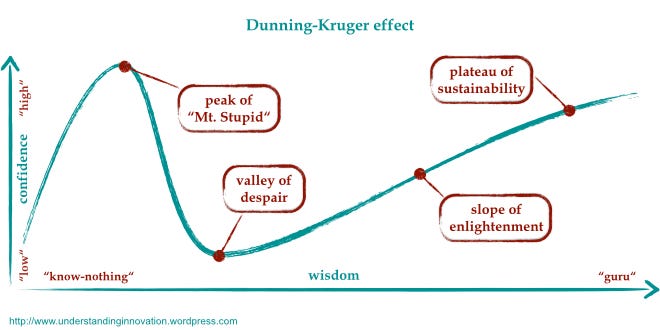You hover over the “Buy Now” button, hesitating momentarily before clicking, but finally you budge. Perhaps it’s the 10th impulse purchase of the month, but this one got your attention. It sounds credible and it’s cheap, but most importantly, it has fewer steps than the last several useless ones you tried.
The risk is affordable and you have already spent this much time on your craft—what if you missed out on the key to success just to save $10 bucks?
After all, if the experience of the previous unsuccessful ventures has taught you anything, it’s that a budget-friendly promise can indeed have a few useful pointers that can be added to your toolbox. In fact, you have a compilation of a step here and a step there that you’ve been able to successfully implement into your practice.
While not every step from every workshop worked, when you put the resonating ones together, they have proven to work by slowly moving you along; your viewership and feedback have indeed inched upward since last month.
Yet, here you are again, barely a third of the way through the current lesson, and you have decided that it’s time to put pedal to the metal. You have heard enough to understand the fundamental concepts.
You have heard enough to piece together these new strategies with the various self-help insights from the past. And you are simply too excited and on fire to not put pen to paper—now! Everybody knows, you must strike while the iron’s hot!
The excitement is so overwhelming you can barely sit still, so you begin by fast-forwarding the remainder of the lesson to completion, so you can validate and implement your new found learnings.
What’s important right now is to record and expand on these spontaneous insights and the bubbling inspiration that’s making you feel alive. This could be the key to your success and make you rich, once and for all.
And………..…here we are, at this familiar juncture where we—yes, we—consistently veer off.
In psychology this is called “premature confidence”, the Dunning-Kruger effect, the “know-it-all-syndrome.” Now, if you know anything about the Dunning-Kruger effect, or you’ve been called a “know-it-all” before,, please know I have your back and don’t come for me, let us just explore.
Image source: Understanding Innovation blog (2015), “The Dunning-Kruger Effect in Innovation”
While the Dunning-Kruger effect may sound harsh, it does have some legitimate points. Online, it’s described as “..a cognitive bias that causes people to overestimate their abilities in areas where they lack knowledge or skill”—ouch.
I know, I will be the first to fight this statement. I swear I’m on your side; I know you are intelligent, creative, with immense potential, but hear me out just one more time.
There are some elements of this psychological pattern that resonate too much: overconfidence, limited expertise, arrogance and superiority to others are just a few that jump right off. I don't know if these words resonate for you, but they certainly ring aloud for me.
I must confess to you that while I am a professional at human behavior, I am no more than an apprentice writer. Yet it is I that is crafting this analysis, piece by painstaking piece, as I play and pause the $7.99 “how-to” —while deciding simultaneously to teach.
What’s a possible solution for us Dunning-Krugers and the rest?
Recognize this tendency to jump ahead of our creative process and use patience as a strength.
It’s okay to embrace our unique approach, but also I recommend we re-frame the learning process—so that our talent and our skills are sharpened, instead of ending in some stunted growth.








Love this! So true !
I love this! Only lately have I been able to understand that and finally manage to avoid those traps. I don't want to, but I'll probably do it again sometime. Now though, I try to think of what I can truly get from a course before buying and commit to finish it before moving on to the next one. Quite a hard task I tell you! lol thanks for that reminder, you probably saved me a month or so before my next impulse ;-)